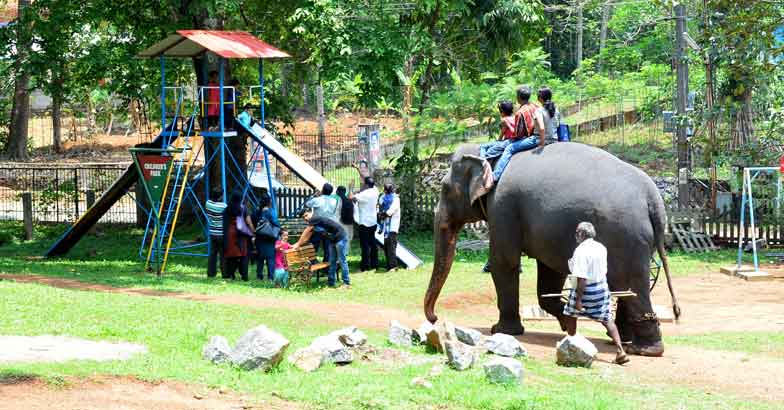The Konni Elephant Training Center, nestled in the scenic landscape of Kerala’s Pathanamthitta district in southern India, is a place where the ancient tradition of capturing and training elephants is practiced with reverence and care. This center, also known as the Konni Elephant Camp, offers visitors a unique opportunity to witness the bond between mahouts (elephant trainers) and their gentle giants while learning about the history and culture of elephant handling in Kerala. In this article, we will explore the history, significance, activities, and the cultural importance of the Konni Elephant Training Center.
Historical Background
The Konni Elephant Training Center has a history dating back several centuries. It played a significant role in the timber industry and transportation during the time when elephants were employed for logging and other heavy-duty tasks. These trained elephants were essential in the development and growth of the region. While the timber industry has transformed over the years, the tradition of elephant training and care continues at Konni.
Key Attractions and Activities
- Elephant Interaction: Visitors to the Konni Elephant Training Center can get up close and personal with the elephants. You can watch the mahouts engage with the elephants and learn about their daily routines, feeding habits, and behaviors.
- Elephant Rides: One of the main attractions at the center is the opportunity to take an elephant ride. This allows visitors to experience the majestic forest and lush surroundings from the vantage point of an elephant’s back.
- Bathing and Feeding: You can witness the elephants enjoying their bath in the nearby river. It’s a delight to see these gentle giants splashing in the water. Additionally, you can feed the elephants and interact with them under the guidance of trained mahouts.
- Educational Programs: The center offers educational programs and demonstrations that provide insights into the history of elephant training, the conservation efforts being undertaken, and the role of elephants in Kerala’s cultural heritage.
- Forest Trekking: Surrounding the center are pristine forests with trekking trails. Visitors can embark on guided treks to explore the natural beauty of the region and spot native flora and fauna.
- Timber Museum: The Timber Museum at Konni showcases the history of timber trade in Kerala and the tools and equipment used in the industry. It offers a glimpse into the past when elephants played a pivotal role in timber extraction.
Conservation and Care
While the Konni Elephant Training Center continues the tradition of elephant care and training, it also emphasizes the importance of elephant conservation and welfare. Efforts are made to ensure that the elephants are treated humanely, and veterinary care is provided when needed. The center aims to raise awareness about elephant conservation among visitors.
Visiting Tips
- Ensure that you follow the guidelines and instructions provided by the authorities for your safety and the well-being of the elephants.
- Photography is allowed, but be respectful of the animals and the mahouts when taking pictures.
- Wear comfortable clothing and footwear suitable for outdoor activities.
How to Reach
- By Air: The nearest airport is Trivandrum International Airport, approximately 88 kilometers (55 miles) away.
- By Rail: Chengannur Railway Station is the nearest railway station, located about 34 kilometers (21 miles) from Konni.
- By Road: Konni is well-connected by road, and visitors can reach the center by taxi or private transport from nearby towns like Pathanamthitta or Chengannur.
Conclusion
The Konni Elephant Training Center offers a unique and culturally rich experience where visitors can witness the harmonious relationship between humans and elephants. While it preserves the traditional practices of elephant training, it also highlights the importance of conservation and ethical treatment of these magnificent creatures. A visit to Konni is not only an opportunity to learn about Kerala’s heritage but also a chance to appreciate the beauty and intelligence of elephants in a responsible and respectful manner.

